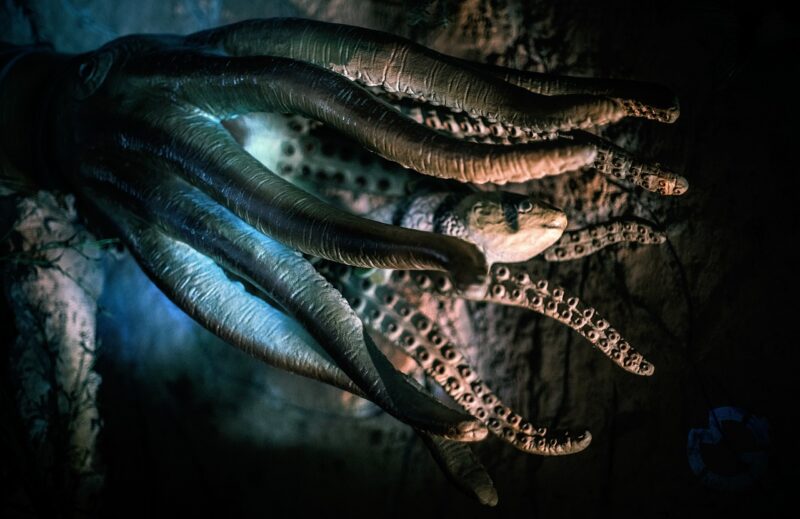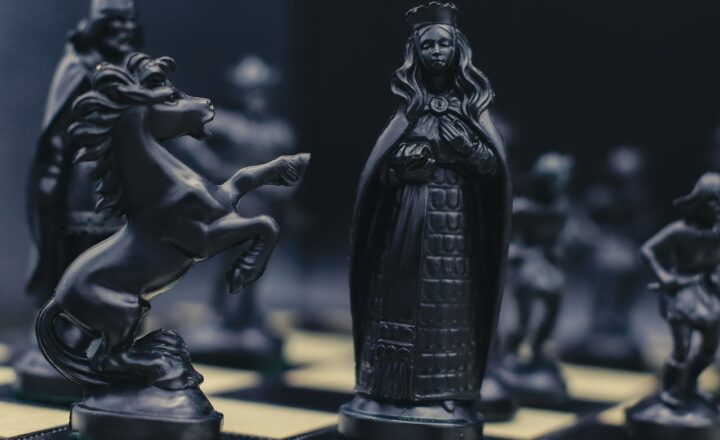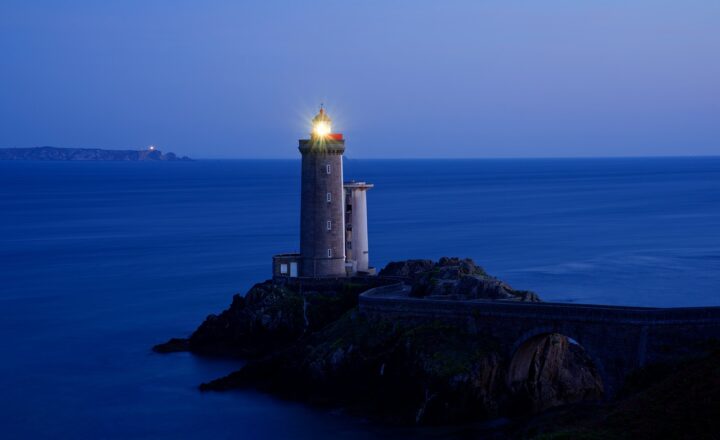
The legend of the Kraken has captured the imagination of sailors, historians, and monster enthusiasts for centuries. This colossal sea creature, often depicted as a giant octopus or squid, is said to lurk in the depths of the sea, dragging entire ships and their crews to watery graves. But is the Kraken a genuine monster of the deep, or could it merely be a mistranslation, a result of misunderstandings over the years? In this article, we will delve into the origins of the Kraken legend, explore historical accounts, and analyze whether this creature truly exists or is simply a figment of sailors’ imaginations.
1. What is the Kraken?
The Kraken is often described as a colossal sea creature resembling a giant octopus or squid, capable of dragging ships under the water with its long tentacles. The earliest accounts of the Kraken come from Scandinavian folklore, where it was said to inhabit the seas around Norway and Greenland. Sailors often spoke of the Kraken as a fearsome beast that would rise from the depths during storms, causing ships to capsize or disappear.
The word “Kraken” itself likely comes from the Norwegian word “krake,” which means “something twisted or large.” This aligns with how sailors might have perceived the mysterious sea creature and its immense size and power.
2. The Origins of the Legend: A Historical Overview
To understand the legend of the Kraken, we must first examine its historical context. One of the first known accounts of the Kraken appeared in Francesco Negri’s writings in the late 17th century, where he described encounters with a monstrous sea creature off the coasts of Norway. His accounts, combined with various sailors’ tales over the years, contributed to the myth’s growth.
In 1802, the tale was further popularized when a natural historian, Johan Spöer, published an article about the creature’s existence. Spöer argued that the Kraken was not just a myth but a genuine creature that could exist, referencing large squids that have been documented in deeper ocean waters.
Sailors returning from long voyages added to the lore with stories of their encounters with the beast, often exaggerating the details for dramatic effect. This tension between fact and fiction fueled speculation about what the Kraken might be and illuminated the world of the unknown regarding the vast oceans.
3. The Science Behind the Myth: Could Real Creatures Be Misinterpreted as the Kraken?
As science began to advance, especially in the fields of marine biology and oceanography, researchers found that some of the characteristics of the Kraken could very well align with real, monstrous creatures that inhabit our oceans.
One possible candidate for the Kraken is the giant squid (Architeuthis dux), a creature known to reach lengths of up to 43 feet. The giant squid was considered a myth until a live specimen was captured in 2006, changing how we view these deep-sea dwellers. The immense size, mysterious nature, and elusive behavior of giant squids could certainly have contributed to the legends surrounding the Kraken.
Another potential explanation for the Kraken legend is the presence of other large marine animals, such as the sperm whale, which is known to engage in battles with squids. These encounters could lead sailors to mistake these interactions for the activities of a sea monster.
4. Mistranslations and Misinterpretations: Is the Kraken Just a Linguistic Confusion?
The legends surrounding the Kraken may not only stem from the vivid imaginations of sailors but may also involve a series of mistranslations and misunderstandings. During the Age of Exploration, as European sailors ventured into new waters, they encountered unfamiliar sea creatures and cultures whose languages they did not understand.
One common folklore misinterpretation arises from the name used to describe various sea creatures. For instance, the term “Kraken” was commonly applied to large sea animals, including harmless species like gigantic jellyfish or groups of fish, which could lead to exaggerated tales and embellishments.
Historically, marine animals were often looked upon with fear and suspicion. Mistranslations and misunderstandings across languages could distort accounts of these creatures, resulting in the looming presence of a monster like the Kraken rather than the realities of marine life, infused with natural wonders instead of terror.
5. Cultural Depictions of the Kraken: From Literature to Film
The Kraken has ingrained itself into literature, films, and popular culture, exemplifying the timeless fascination with sea monsters. One of the most famous references to the Kraken in literature can be found in Alfred Lord Tennyson’s 1830 poem, “The Kraken,” where he describes the creature waiting in the depths, ready to rise and strike.
Moreover, the Kraken has been featured in numerous films, including “Pirates of the Caribbean: Dead Man’s Chest,” where it is depicted as a terrifying force attacking Captain Jack Sparrow’s ship. These portrayals have contributed to the legend’s immortality, mixing myth with modern storytelling in engaging and memorable ways.
Through these depictions, the Kraken serves not only as a terrifying creature of the sea but also reflects humanity’s ongoing quest to understand the unknown, symbolizing fear, adventure, and the mystery of ocean exploration.
6. Conclusion: The Kraken’s Legacy
The legend of the Kraken is a compelling intersection of myth, maritime history, and possibly misunderstood scientific observation. While many people find comfort in attributing sea monsters to old myths, others view them as representations of our fears and fascination with the unknown. Whether the Kraken exists in reality as a creature lurking in the ocean depths or exists only in stories passed down through generations, its legacy endures.
Thus, to ask whether the Kraken is a sea monster or simply a mistranslation does not yield an easy answer. Instead, it opens a broader conversation about how human beings interpret and narrate the mysteries that lie beyond the shoreline, forever inspiring awe and curiosity in the deepest waters of our world.
As we continue to unravel the mysteries of the ocean, perhaps the truth behind the Kraken legend will become clearer, offering a blend of myth, history, and the search for knowledge that defines the human experience.






